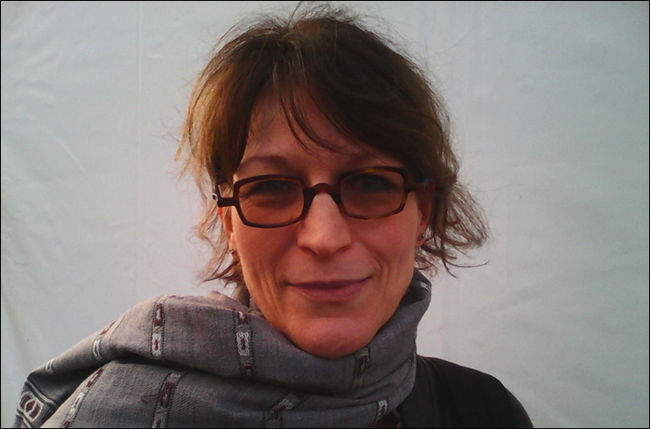Interview by Hassan Benmehdi in Marrakech
for Magharebia
![Young people are the most willing to take action against hate speech, international expert Agnès Callamard says. [Magahrebia/Hassan Benmehdi]](http://www.moroccotomorrow.org/wp-content/uploads/2015/01/Dr-Agnes-300x198.jpg)
Young people are the most willing to take action against hate speech, international expert Agnès Callamard says. [Magahrebia/Hassan Benmehdi]
“We’re living in an unstable world,” says Dr Agnès Callamard, who blames the rise in radical speech for much of the recent conflicts seen worldwide.
The former executive director of Article 19 has worked on many international human rights initiatives. She now directs the Global Freedom of Expression and Information Project at Columbia University.
Magharebia met with her in Marrakech to learn more about the hate speech menace, why young people are most at risk, and what religious leaders and the government can do to stop it.
Magharebia: What is the impact of extremist speech on how different populations and cultures live side by side?
Agnès Callamard: Generally speaking, radical speech with its sectarian tendencies has a strong impact on intercultural dialogue and the co-existence between different civilisations across the world.
Magharebia: What’s the situation in the Arab region? Is most speech political?
Callamard: …People often move away from political opinion and indulge in more dangerous discourse, which consists of inciting hatred, with speakers – both male and female – asking their listeners to attack other people through acts of violence. Minorities are the most frequent victims of this kind of discourse.
…there’s a general problem across the world with hate speech, and it’s most frequently, what lies behind inter-ethnic, religious and racial conflict and so on.
We’re living in a very unstable world at the moment.
Magharebia: Are young people the ones most influenced by such messages?
Callamard: I think hate speech can influence young and old alike. It’s just that young people are more inclined to take action on the basis of radical speech. They are young, ambitious, and have more energy to take action on the basis of such speech when they strongly believe it. They’re also capable of taking up weapons because they have the physical energy.
However, hate speech and those who nurture it can reach into all age groups. Public speakers must bear most of the responsibility for the way they educate young people, communicate with them, and for the way in which they deal with youth issues.
But that shouldn’t lead to the sort of anti-youth feeling, which you find in almost all societies and cultures around the world.
Magharebia: Young people are being lured by hate speech to the Islamic State and other terror groups. What about this development?
Callamard : Yes, you’re right. It’s a real problem, young people joining the Daesh fighters. That’s very worrying.
Magharebia: So what can be done to stop this?
Callamard: …You need to convince young people not to leave any doors open to those who try to influence them or shape their attitudes with messages of hatred.
Magharebia: What else can prevent them from being tempted by hate speech?
Callamard: A state has a duty to respect the rights of all citizens and all minorities. Hate speech feeds on public policy that encourages discrimination. That gives hate speech a certain legitimacy.
The role of the state is not to adopt a stance that is half hatred, half politics. A government belongs to the whole of the population, not to a particular people, or to this or that religion.
A state also has a duty to protect minorities who are attacked on the basis of their religion, their cultural identity, their race, or even their poverty.
Magharebia: But isn’t poverty one of the things that leads young people to adopt the terrorist agenda?
Callamard: It’s clear that the preachers of hate feed on such a situation to get young people who have no hope on board. That’s a real problem. But you mustn’t forget that there are other structural factors in society that encourage hatred among young people.
For example, you have the Coptic minorities in Egypt. The same goes for the Muslim minorities in Pakistan. The treatment reserved for all those who have different ideas in Saudi Arabia. The same thing applies to the rise in hatred against Muslims and immigrants in Europe.
There are also those inciting terrorism with Daesh…
Magharebia: Are you hopeful that the world can stem extremist speech?
Callamard: In the work I do, I come across a lot of religious people, both Sunni and Shiite, from the Middle East, and there’s a real awareness and desire to agree on what measures should be taken to put a stop to hate speech.
Religious figures have an important role to play in countering extremist speech. Civil Society activists also need to ensure they have this area covered. It’s theirs by right.







